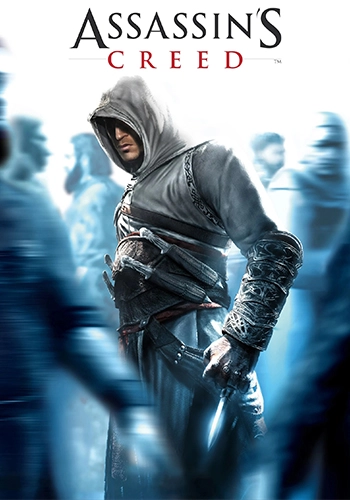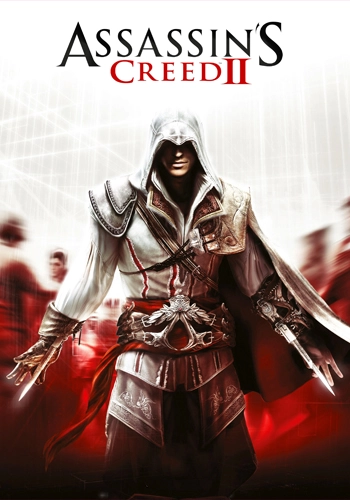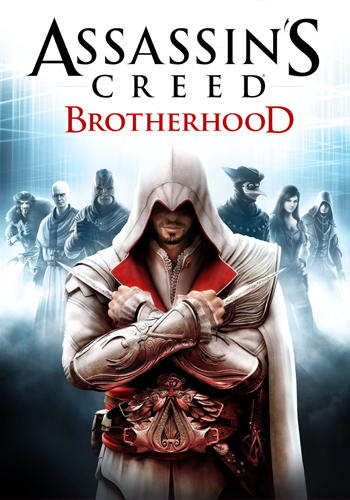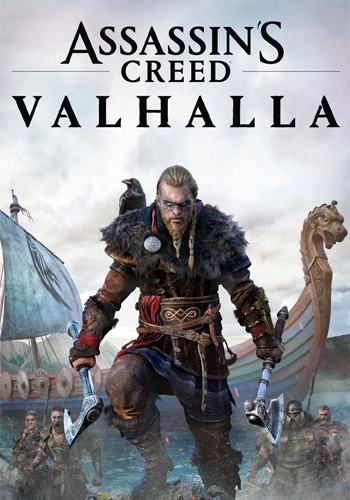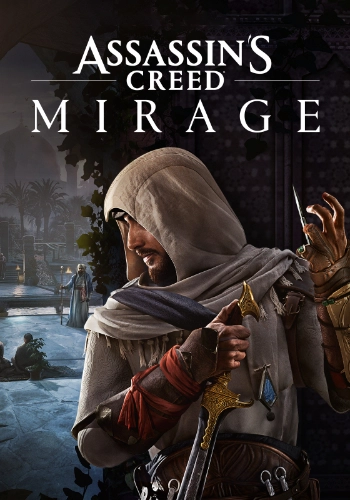Assassin’s Creed Mirage
Assassin’s Creed Mirage
Much Assassin's Creed, too much Valhalla
Four years ago, Assassin’s Creed Valhalla was released, the last major installment in the series, and Assassin’s Creed Shadows was supposed to take us back to feudal Japan in the 16th century this year. However, contrary to all modern conventions, the release date has been postponed to February 2025. So does it actually happen? Will a game be finished before release? Or was it simply in such a bad state that not even Ubisoft wanted to take the risk of alienating potential players?
We won't be able to answer this question until the start of next year at the earliest, after the ninja spin-off has been released. Until then, however, there will be another murderous meal in the form of Assassin’s Creed Mirage. Although this is not set in England in the early Middle Ages, it also revolves around a character from the Viking spin-off: Basim. As a representative of the Order of Assassins, he was sent to the far north to provide hero/heroine Eivor with some kind of connection to the game universe and, of course, the hidden blade.
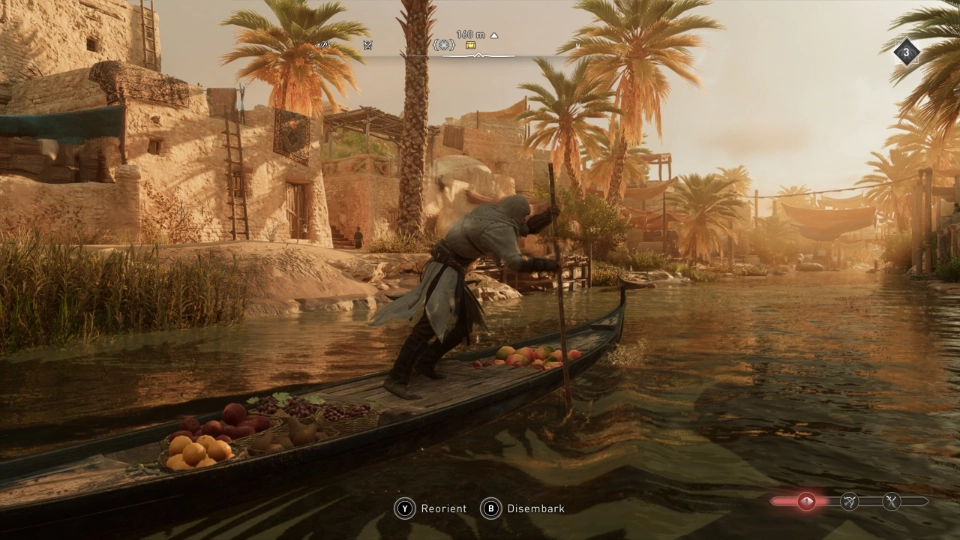
Beautiful Baghdad
Mirage now tells the background story of Basim in Baghdad, which was an obvious decision in view of the end of Valhalla. However, this also means that people who have not played the Vikings spin-off are likely to be unfamiliar with the character. Because, and this must be mentioned, Mirage was originally planned as DLC. This also explains the relatively short playing time of around 15 hours if you only play the main quest. It took me about 23 hours for my 100% completion run (not counting the achievements).
Of course, you could argue that Brotherhood was also intended as DLC for Assassin’s Creed II, that Revelations was actually supposed to be released for the 3DS or that spin-offs such as Freedom Cry, Liberation or Rogue take a similar approach. However, the latter in particular, all of which feature new protagonists, only marginally have anything to do with the actual main game, and only Rogue could be described as a prequel to Unity and Assassin’s Creed III. Mirage, meanwhile, is merely about the fate of one man, who only becomes relevant later and comes across as rather one-dimensional here. As a result, it is almost mandatory to be familiar with Valhalla in order to build up any kind of connection.
Incidentally, if you know nothing about the Templar and Assassin series and have just mentally dropped out with all the game names, you will still be able to follow the story of Mirage , as the plot is really only there to illustrate Basim's character development - and that is its greatest weakness for long stretches. The story is incredibly trivial, especially at the beginning, and only really gets going in the final act.
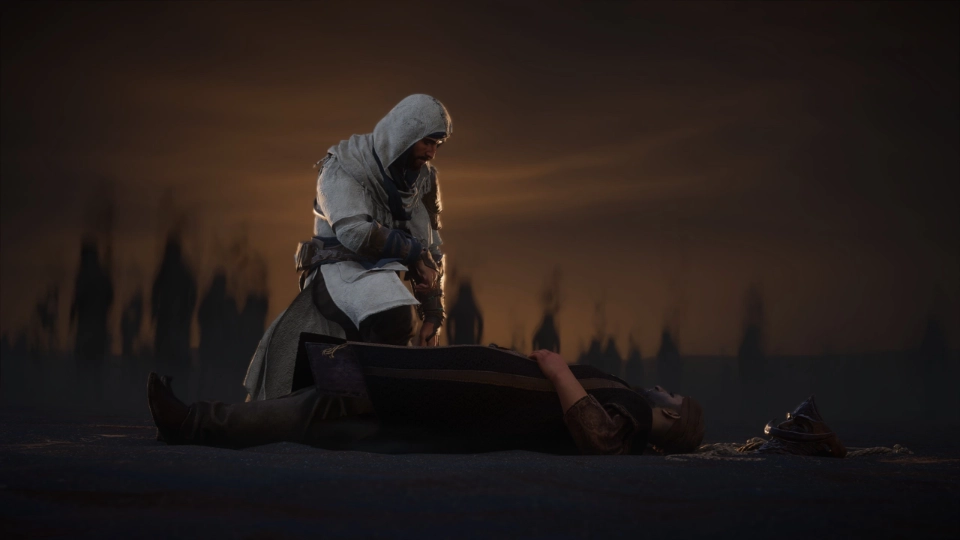
It starts with the fact that Basim's backstory is a cliché: He is a thieving urchin working for the Assassins (or 'Hidden Ones' at the time) and would like to become a member of them. This is not conveyed through subtle storytelling, but in a big marathon of exposition. Within the first half hour, something goes wrong, which is why Basim has to leave Baghdad and is accepted into the Order of Assassins without much back and forth. A short training montage (with techno music!) later, we are back in the capital of the Caliphate and are tasked with dismantling the Order of the Templars (or 'Order of the Ancients' at the time).
In a very short space of time, Mirage shows that it is not at all interested in telling an exciting story, but in getting us into the gameplay loop of the old days as quickly as possible. One almost wonders why we even have to sit through the first hour if Basim's backstory is presented in such a rushed and uninspiring manner. Then again, there were enough people who got annoyed by the rambling childhood backstories of Ratonhnhaké (AC III) or Arno (Unity) - maybe you can't please anyone.
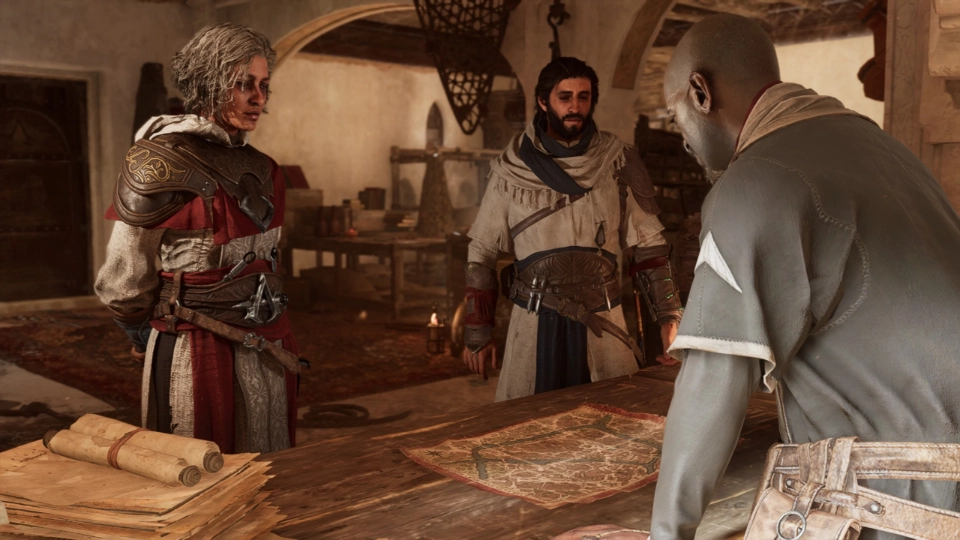
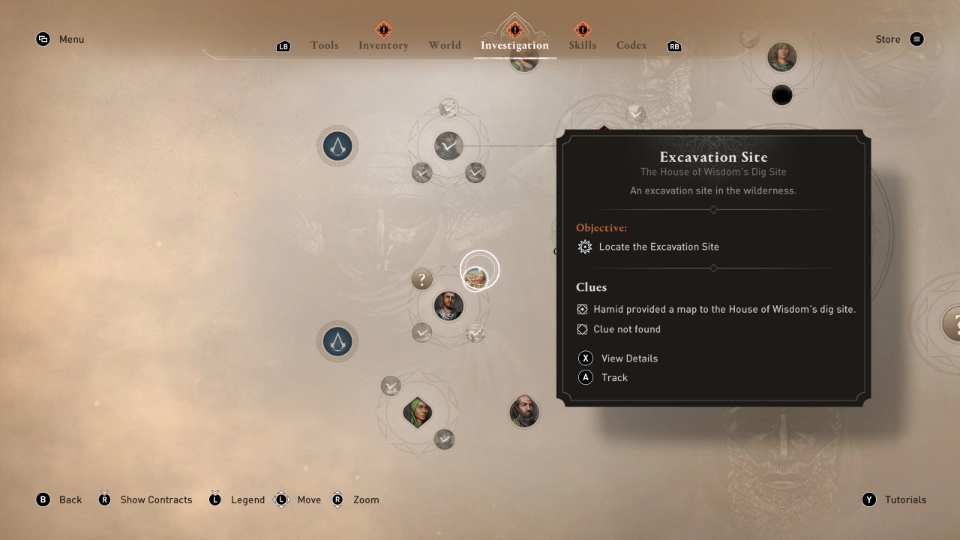
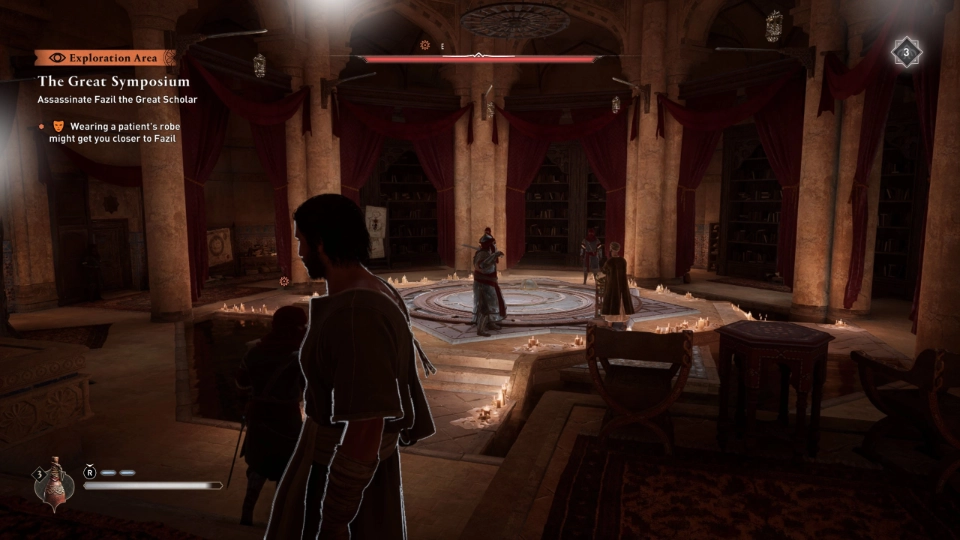
B for Vendetta
Nevertheless, at the beginning it seems as if the management has taken my conclusion from Valhalla to heart and is once again focusing on old virtues. Once in the loop, Mirage is a lot of fun. As before, we again have targets about whom we gradually gather new information and assassinate our way through the web of order members until we find the head. The progression is not fixed; after arriving in Baghdad, all areas of the city and the outside world are open to us. So if, like me, you first want to uncover the whole map and find all the collectibles, you can do this in exactly the same way as those who stubbornly follow the story with blinkers on.
Unlike the other predecessors, Mirage does not punish this urge to explore, but rather invites us to look around. For example, the vantage points that are typical of the series no longer reveal all the treasures on the map, but only give us markers that we can check out or discover as we walk past. Among other things, we can find materials in them that we need to improve our equipment. Although the various weapons and armor do not directly change our damage output, they do provide various bonuses such as the ability to take out guards more quietly or a slower increase in our wanted level.
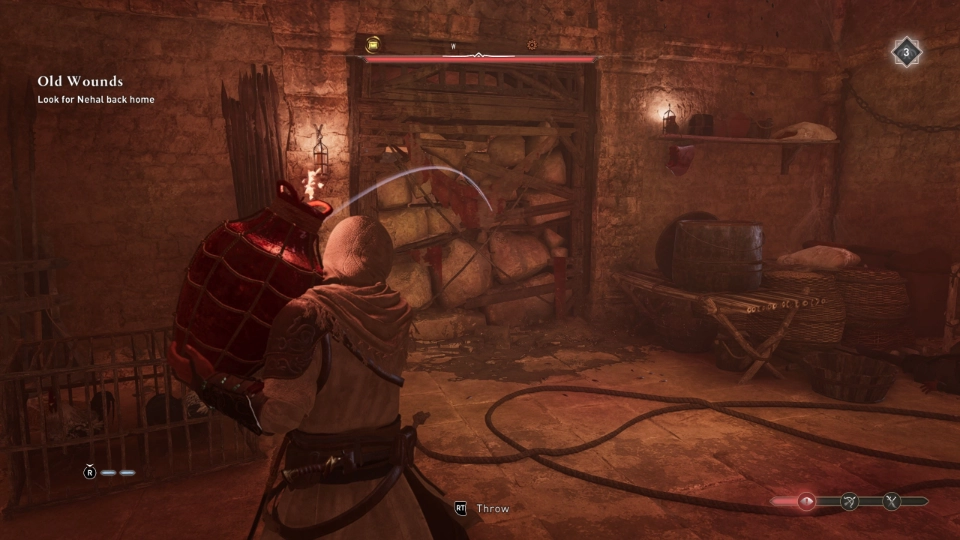
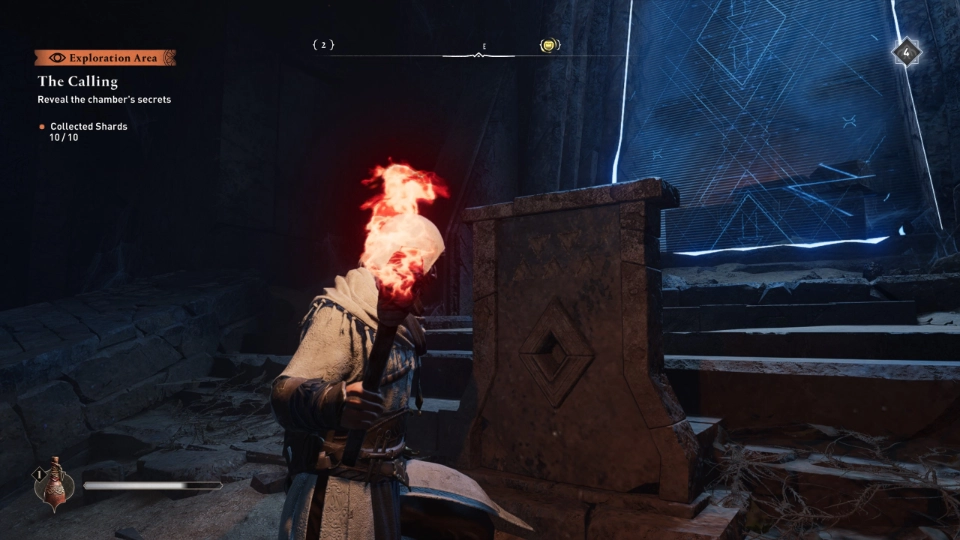
However, Mirage is not a role-playing game. As in the old installments, there are thankfully no more enemy levels and, with a few exceptions, all opponents can be killed in one hit by using the hidden blade or a well-aimed throwing knife. Gone are the days of Origins and the like, with their action-adventure approach that had us searching for better and better equipment to increase our damage values. This may offend number fetishists, but they should try out franchises like Diablo or Borderlands in search of the best build. This change alone makes Basim's adventure feel much more old-school without appearing outdated.
This feeling is reinforced by the addition of old mechanics, such as the aforementioned wanted level. This increases gradually the more guards we take down and causes us to be recognized on the street. This can be reduced by bribing market criers or removing wanted posters. That's right, we've got them again, the wanted letters, which magically make us less sought after when torn down. Fortunately, this system is not very annoying, and we rarely have to go into hiding for an extended period of time.
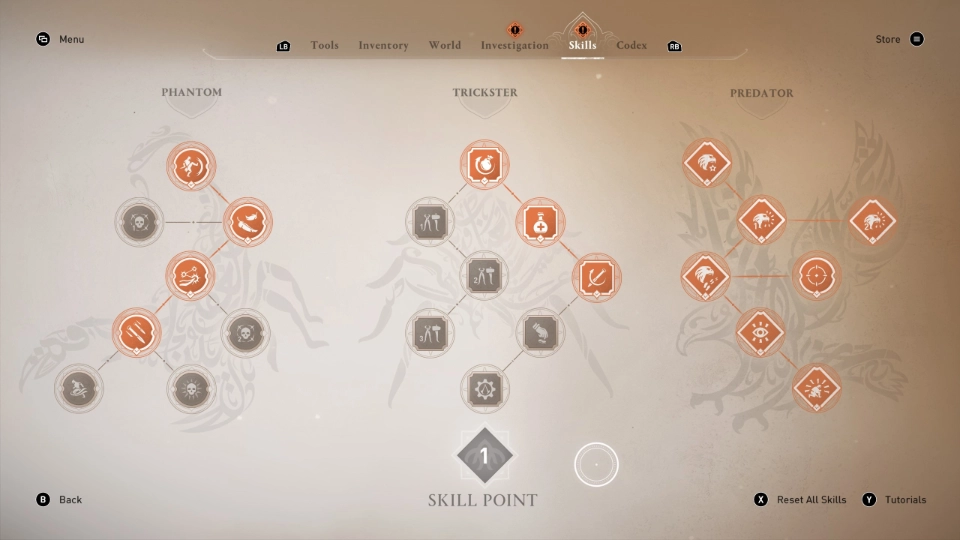
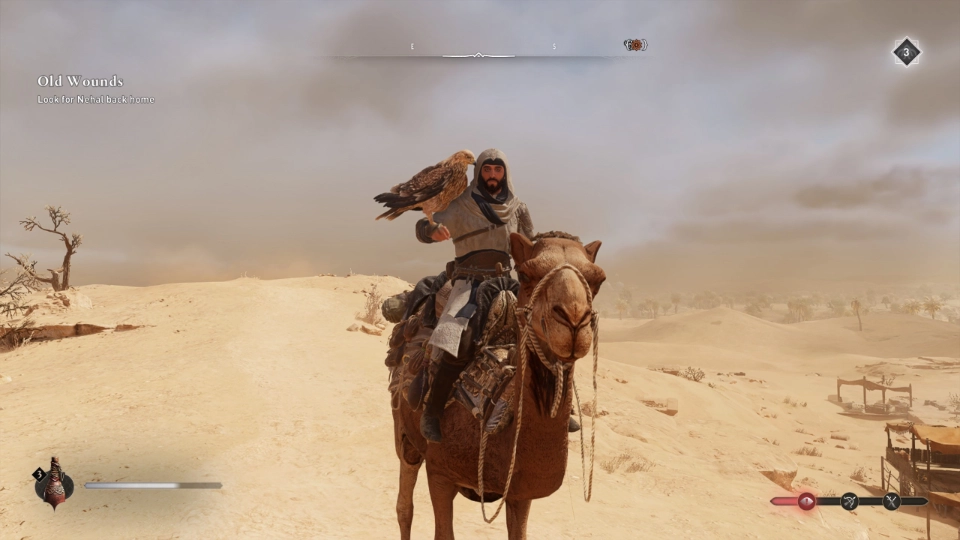
We also receive tokens when exploring Baghdad and the surrounding area, through pickpocketing or by completing small side quests. As officially recognized currency and seemingly highly coveted goods, we can exchange them to get better prices from the merchant or to hire a mercenary squad to attack nearby guards so that we can sneak past unnoticed. We are also familiar with this from the earlier games. This variety of options also carries over to the missions, in which we have a multitude of options thanks to the established free-climbing system, now supplemented by the old virtues.
This is wonderfully reminiscent of the very first Assassin’s Creed, in which we were able to disappear into the crowd and pass guards in a group of monks. As a result, game mechanics such as sneaking or the use of gadgets are rewarded again, which seemed superfluous in Valhalla . I don't want to say I told you so, but I told you so. However, we can also slice our way through the enemies and significantly shorten the sneaking sections. However, due to the different enemy and attack types, this is no longer as easy as it was in Assassin’s Creed II, where our opponents could be countered one after the other.
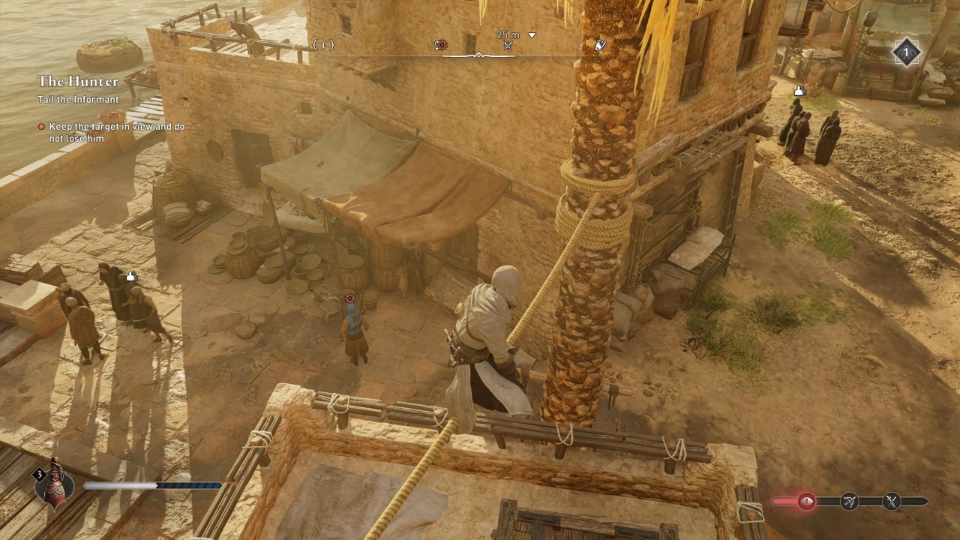
All quiet at the Near Eastern front?
In other words, an old-school Assassin’s Creed that preserves the virtues of the past and complements them with newly acquired elements? The perfect symbiosis of then and now? Unfortunately, I have to put a damper on that, because neither then nor now was or is everything perfect. Mirage inherits some of the problems of its predecessors. One of the biggest points of criticism here is probably the AI, which hardly poses any danger to us during our sneak attacks and returns to its everyday routine shortly after the death of a comrade, as if nothing had happened. There is no increase in the alert level or adjustment of patrol routes; at most, reinforcements are called for in combat and even this can be quickly stopped with a well aimed throwing knife.
The other problem is the climbing mechanics. This is because it is based on the system from Origins, Odyssey and Valhalla, which are primarily set in sparsely populated regions. In Mirage , however, 90 percent of our time is spent in winding alleyways and on rooftops. This is where the parkour system, which has been scaled back after Unity's wonderful acrobatic moves, quickly reaches its limits. The result is that we frequently jump off buildings, dangle from ledges or simply get stuck.
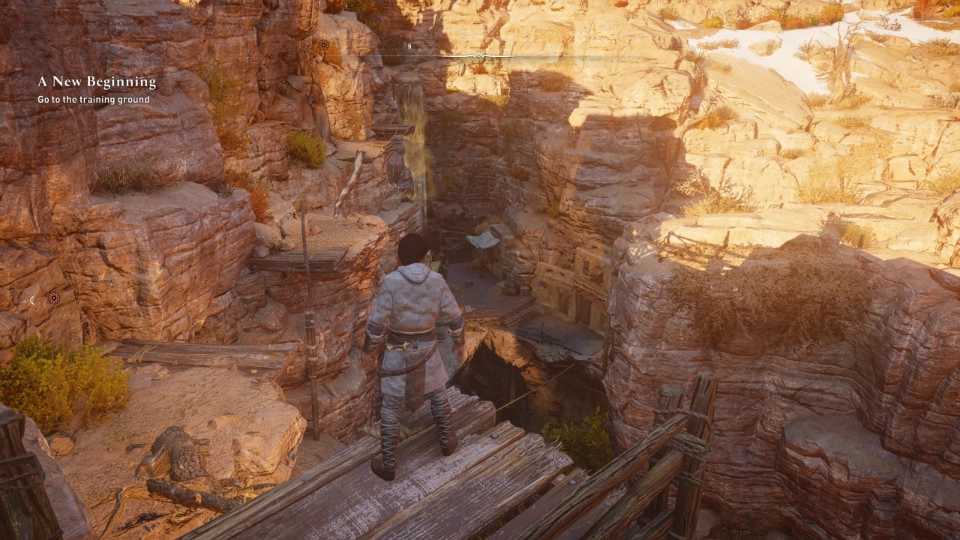
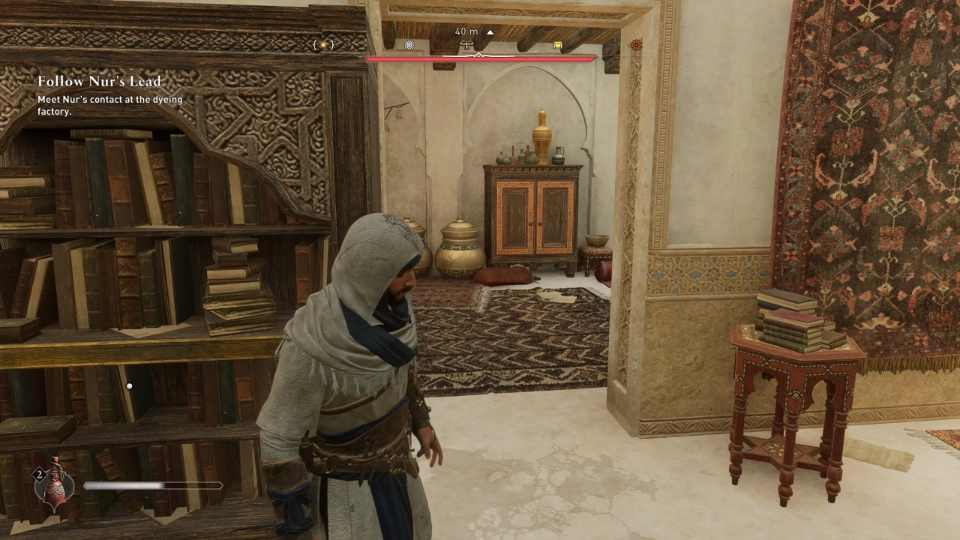
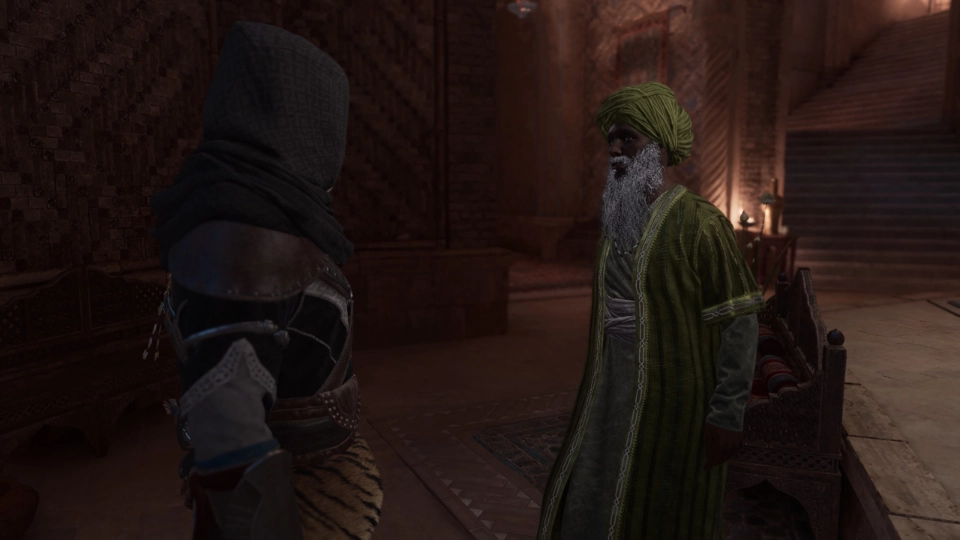
The immersion of Baghdad, which is otherwise fantastic to look at, suffers as a result. The graphics are almost always convincing on Ultra, but primarily in terms of the scenery. The illusion quickly begins to crumble, however, if you take a closer look at the city's inhabitants or individual textures: dead eyes, a lack of facial expressions and hair without any sensible illumination are probably the biggest shortcomings. But the picturesque atmosphere is also spoiled when Basim gets stuck on crowds of people or objects, runs on the spot or performs stupid maneuvers that we didn't have in mind due to the sometimes imprecise controls. The constantly locked or barricaded doors and windows also left us scratching our heads, even if it didn't come close to the asset recycling debacle of Valhalla.
There are also minor points of criticism that can be found in many modern games: Why is there a dynamic day/night change when the streets are always equally full and the merchants are hawking their wares at all times of the day and night? Why does a red icon on chests indicate that it is theft when there are no consequences? And the fact that I only had to actually use the torch once and that it otherwise occupies a prominent spot in my gadget inventory doesn't make sense to me either. Meanwhile, I'd like to ask the entire games industry why you have to hold buttons to perform an action. Just why?
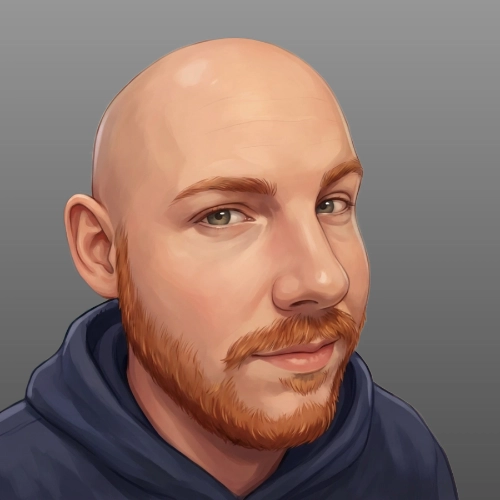
Bottom line
All of these points mean that Mirage doesn't come close to the old greats, which shouldn't come as a surprise given its modest scope. However, the game is a very good test balloon to see which features could coexist in future installments. And that's what I'd like to see, because the Assassin’s Creed-series remains one of the few series that harmonize history and fiction so wonderfully that you feel transported back in time: the art design is beautiful, the voice actors with their authentic Arabic and Mediterranean pronunciations are fitting and I haven't even started talking about the soundtrack - this much: top notch!
However, the problems of the past have not all been resolved and this experiment cannot, of course, address general problems such as a gripping story. But it highlights the issues and hopefully provides a good link to future installments that continue to focus on the strengths of Assassin’s Creed . And maybe, maybe a new graphics engine could ensure that we finally get to see characters pulling their hoods over their heads instead of always awkwardly cutting away. That would be nice.

